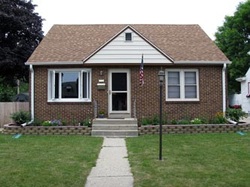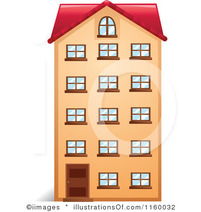
If I were going to build Utopia, what would it look like?
First let me clarify: The subject of Homelessness has been on my mind a lot lately. Not the usual depiction of homelessness, that of people living on the streets, or in shelters. Those are the ones easily counted, and those that immediately come to mind. I am thinking about the Hidden Homeless: single adults and families that live in motels, in their cars, or couch surf with various friends and family while trying to sort out their lives. This group consists of people that generally have a job, but through some misfortune ended up losing their house or apartment at a time when it was difficult to obtain another place quickly. Due to their lower Middle Class income (Think a family of three or four making anywhere between $32,000 and $75,000 annually as a rough estimate), not only do they not qualify for any type of emergency aid, they often have very little of no savings to fall back on, as this group tends to live paycheck to paycheck, or alternately used up any savings they may have had on whatever misfortune caused them to lose their homes in the first place.
When creating my own little version of Utopia, I tend to start with this lower Middle Class group, also referred to as the Working Class. This is the class of Blue Collar, and lower level white collar employees that we depend on to get those critical, front line jobs done, but overlook when it comes to thinking of someone who may need assistance down the line. Although this is mostly a self sufficient group, even they realize that they are not islands unto themselves, and everybody needs a little help sometimes, even if all they want is enough time and space to comfortably get back on their feet. It is this lack of room to fix errors or make up for lost income that turns what should have only been a temporary setback into years of attempts to recover a family's life.
In my own little world, all people would be paid enough to keep pace with the cost of living. There is no reason a working person should be priced out of having a decent place to live within reasonable distance from their job. And, no, I don't consider having to live 60 miles away from your job in order to find decent, affordable housing in reasonably family friendly neighborhoods (an issue endemic to Los Angeles County) a reasonable distance. Whatever money is saved by living far away from work is immediately lost in time (over an hour each way), transportation costs (gas and maintenance on the car, or obscenely expensive bus or train passes), and physical exhaustion from the commute. I can't see where having employees worn out from from hours long commutes benefits any business.
Another option, since we are so fond of handing out tax breaks, is to offer tax breaks to property owners willing to embrace an income based rent structure. Here's how it would work: A family finds, and applies for, an apartment. Once they pass the requisite background and reference checks (for those concerned about criminal behavior), they present the owner/landlord/property management firm with recent paystubs (or tax returns for the self employed), from which the receiving party determines what the family's rent should be based on their net income, ideally no more than 1/3 or 1/4 of the total family income. The tax break would make up the difference. This would ensure that no family was spending more than 60% of their total income on housing costs (which is where quite a few families are now), it would provide for constant residency, and very low turnover for apartment owners, as well as a stable and steady income (with residents needing to provide proof of income either annually, or whenever there is a significant shift in income, such as a job loss, or total family income moves to over six figures, at which point most can afford Fair Market Rent) for the owners, and the ability of residents to build community within their neighborhoods. It is this sense of community that prevents neighborhoods from the downward slide that occurs when there are people constantly moving in and out, and neighbors no longer know each other.
The key to eliminating homelessness, in my world, anyway, would hinge upon employment for all who wanted to work, a wage that would allow for living at least adequately, help and services for those that needed them the most (not based on income, a method which leaves out that same working class), and a rent system that allows everyone to participate. The subtext of all of these changes, is respect for the work and lives of the working class people that drive the economy. They are people, not statistics, whose labor, and who are we kidding, money, contribute the most towards keeping the American way of life moving forward. The lack of respect for this group, (which led to the subsequent financial squeeze on them that ended up contributing greatly to the Great Depression), is a sad reminder that were we not so busy thumbing our collective noses at those we consider socially beneath us, while groveling for crumbs from the tables of the upper classes, we might actually stand a chance of solving some of the more pressing social issues of our time.
I know my little world will likely never happen. What I hope for is that sometime during my lifetime, our nation will come up with a more compassionate, humane way to help everyone who actually needs it. We are one of the most advanced societies on Earth, but we cannot manage to think of a better response to a dramatic increase in homeless families than subtle victim-blaming followed by suggestions that if they really wanted to change they're circumstances, they would "work harder"? We can manage to find money to support conflict in every corner of the Earth, but can never manage to come up with the money to solve internal issues (housing, education, infrastructure repair), that might actually restore America to it's place as a leader among nations. It can be done, but it would take a partnership of leaders and citizens with a will of iron to create and enforce a plan for solving our issues that would be structured enough to meet our goals, but flexible enough to adapt to changing circumstances. That is how problems get solved.
It's worth noting that in my little world, the government we elect, actually represents US. Not the groups and individuals that financed their campaigns and may have a vested interest in Utopia (or any kind of balanced society) coming to pass. The cynic in me figures that this is the real reason things never change, and permanent solutions are never found. The optimist in me wants to be proven wrong.
You never know...



 RSS Feed
RSS Feed
